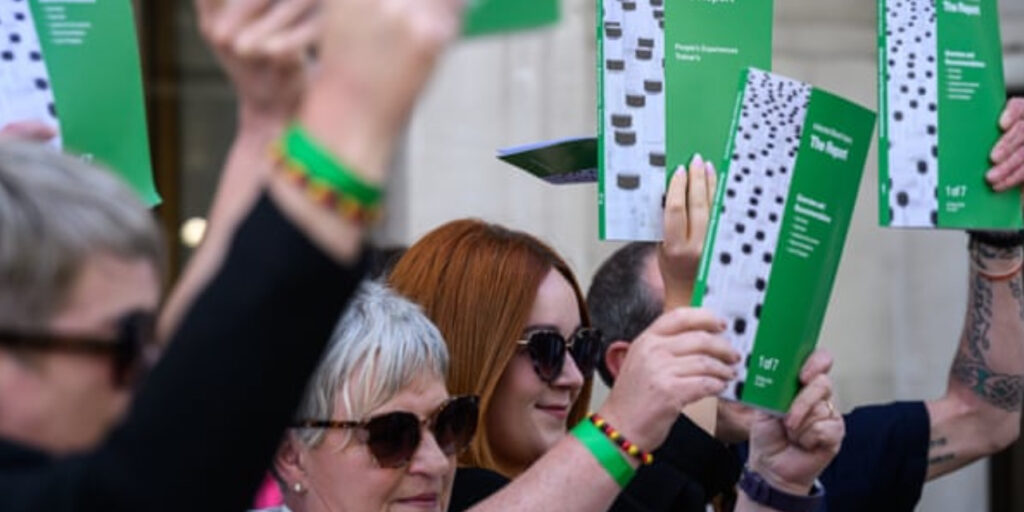Under newly proposed legislation to be considered by Parliament this month, thousands of bereaved families, including parents and children of those affected by the NHS‘s worst treatment disaster—the infected blood scandal—will now have the opportunity to seek compensation for the first time.
The legislation will facilitate claims from not only those directly affected but also extended family members whose lives have been profoundly impacted by the scandal. Campaign groups have expressed relief, albeit tempered by the grief of those who passed away before witnessing justice.
From the 1970s to the early 1990s, over 30,000 NHS patients were administered blood transfusions and related treatments that were contaminated with hepatitis C or HIV, leading to more than 3,000 deaths.
The public inquiry, led by Sir Brian Langstaff, called for immediate compensation in April 2023. However, it was not until after Langstaff’s final report in May of the same year that the government announced the scheme.
The forthcoming legislation is expected to pass by the end of March, enabling not just the infected individuals but also their partners, parents, children, and siblings to claim compensation.
The amount awarded will vary based on the claimant’s relationship to the infected individual and the severity of the infection.
Despite the £11.8 billion earmarked for compensation in the autumn budget, payouts have been slow, with the Infected Blood Compensation Authority (IBCA) having paid out less than 1% of the total by the end of March.
As of 22 January, only 11 compensation offers had been made, with plans to invite about 250 claimants by the end of March.
Critics, including representatives from the Hepatitis C Trust and the Haemophilia Society, have highlighted the excessive delays and the ongoing distress caused to families.
They stress the urgent need for a robust compensation framework that truly reflects the scale of suffering endured by the victims and their families.


